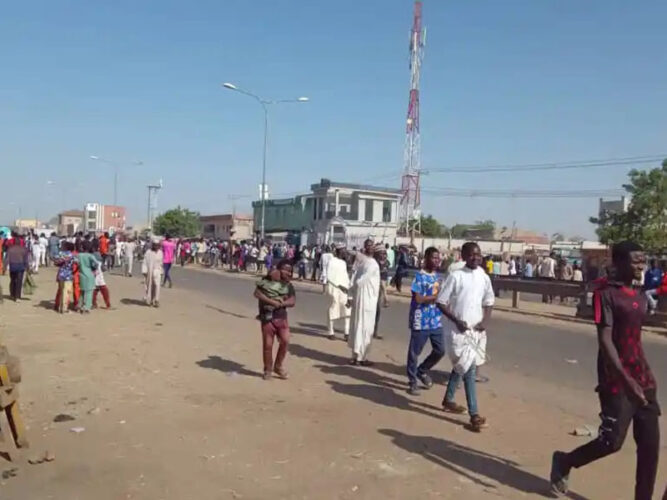The End Bad Governance protests across Nigeria have turned violent in major cities such as Kano, Gombe, and Abuja. In some instances, security officials’ actions sparked the violence, while in other cases, it was due to the behavior of some overzealous protesters or counter-protesters. Initially, the protests started peacefully in all these locations.
Thousands of Nigerians began a 10-day nationwide protest on Thursday to express their frustration over the persistent economic hardships. President Bola Tinubu acknowledged the right to peaceful protests but warned about the dangers of demonstrations being hijacked by criminals.
The president and other officials have urged the youth to halt the protests, labeling them as unwarranted and politically motivated. Protest organizers in Abuja and other areas called for the reversal of the fuel price hike, restoration of affordable electricity tariffs, and reduction of import duties. Demonstrators also demanded the reversal of hikes in tertiary education fees, security for farmlands, and a reduction in staple food prices, among other things. They seek full transparency and accountability in governance, including public disclosure and reduction of public officials' salaries and allowances, and an emergency fund to support SMEs.
In Abuja, protesters were tear-gassed as they moved towards the Three Arms Zone, which houses the National Assembly, the Supreme Court, and the Aso Villa. Armored Personnel Carriers with soldiers and police were deployed to prevent access to the area. Earlier, police directed protesters at the MKO Abiola Stadium to go inside, but they refused and marched towards Eagle Square, close to the Three Arms Zone. The police fired tear gas to prevent them from accessing Eagle Square, leading to chaos. Protesters regrouped around the Ministry of Finance, blocking Ahmadu Bello Way and pushing back against the police. Many were injured, and journalists were specifically targeted, with at least two arrested, including a Premium Times journalist.
In Kano, the protest turned violent when some participants armed themselves with dangerous weapons. Around 10:15 a.m., protesters looted the Rufaidah Yoghurt store on Hadejia Road and a yet-to-be-commissioned industrial park belonging to the Nigeria Communications Commission. Similarly, peaceful protests in Gombe turned chaotic, requiring security intervention.
Local leaders and community organizations have called for calm and dialogue to address the issues that sparked the protests. Efforts are being made to engage with protest organizers and government officials to find a resolution and prevent further unrest.









